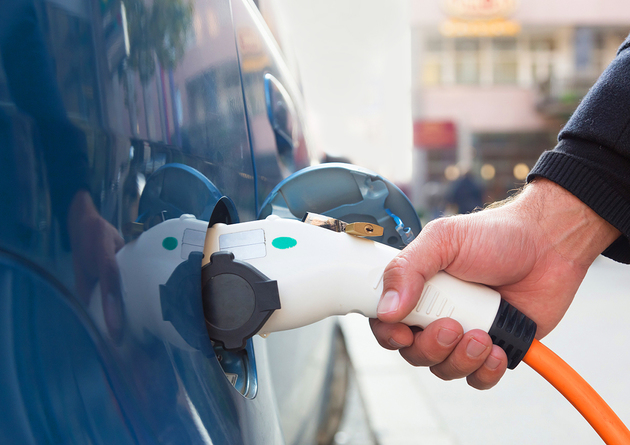
Photo/VCG
Dec. 27 (NBD) -- China is to impose the dual-credit scheme for new-energy vehicles (NEVs) in less than one week after the grace period.
According to the new rules implemented on April 1 of this year, car manufacturers or importers that sell more than 30,000 passenger cars annually will have to amass credits for NEVs equivalent to at least 10 percent of their total in 2019 and 12 percent in 2020.
Data from the China Passenger Car Association (CPCA) showed that around 840,000 new-energy passenger cars were produced in China in the January-November period of this year, generating 2.98 million credits accumulatively, about 15.1 percent of the automakers' total on average.
Cui Dongshu, secretary-general of the CPCA, told news outlet NBD that booming NEV sales led to a substantial rise in credits, but the 15.1 percent level was an average value calculated based on the output, which means not all carmakers could meet the 10 percent target for next year.
Of the new-energy credits amassed in the first 11 months, around 93 percent or 2.78 million credits were contributed by China's indigenous car brands, and the remaining 7 percent or 200,000 credits were produced by automotive joint ventures.
One industry veteran told the 21st Century Business Herald that joint ventures were not as aggressive as indigenous carmakers in the NEV development because of foreign stakeholders' concerns relating to uncertainties about China's incentive policies, low recognition among consumers and difficulties in making profits.
However, with the announcement of the dual-credit scheme, joint ventures including SAIC Volkswagen, FAW-Volkswagen, Changan Ford, Dongfeng Nissan, GAC Toyota and Dongfeng Renault are stepping up efforts to expand their presence in the NEV sector.
A person-in-charge with GAC Toyota said to NBD that the company will continue to bring in eco-friendly, energy-saving powertrain systems and is expected to reach the credit goal in 2019. According to the development plan, GAC Toyota will introduce the Levin PHEV in the spring of next year and bring the all-electric C-HR to market in 2020.
In late October, SAIC Volkswagen started construction on its NEV plant in Shanghai's Jiading District.
Estimated to cost a total of 17 billion yuan (2.5 billion U.S. dollars), the plant boasts a designed annual production capacity of 300,000 NEVs, and is projected to be put into production in 2020. Electric car models under brands including Audi, Volkswagen and Skoda will roll off the plant's production line in the coming years.
Under a long-term framework agreement signed with BMW in July this year, BMW Brilliance will start producing the fully electric BMW iX3 at its Dadong plant in Shenyang from 2020 and will sell the model globally.
It could be seen that NEVs from joint ventures will enter the market intensively from 2020 onwards. This will undoubtedly intensify the competition in the niche segment.
The gap between carmakers will widen, with less competitive ones likely to be marginalized, merged or restructured, Chen Qingtai, chairman of the China EV100, an associated organization dedicated to advancing the research, development and deployment of NEVs in China, said to the 21st Century Business Herald.
In particular, joint ventures are predicted to place greater pressure on indigenous brands in the plug-in hybrid car sector, as their plug-in hybrid technologies are more sophisticated and more cost-effective, Cui said previously in an interview with the news outlet.
Email: lansuying@nbd.com.cn


 川公网安备 51019002001991号
川公网安备 51019002001991号





